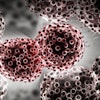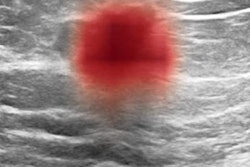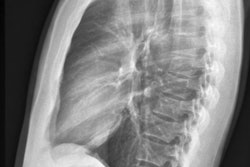
When implementing radiology artificial intelligence (AI) software in a community hospital, it helps to keep the big picture in mind, according to an article published September 29 in the Journal of the American College of Radiology.
Rather than invest right away in radiology AI algorithms that only benefit radiologists, Middlesex Health in Middletown, CT, elected to focus initially on AI applications outside of image interpretation, which would benefit all stakeholders in their community hospital setting.
"Although radiologists at our institution saw AI as the future of the field, we were concerned that if the first deployment of AI in our health system was to assist the radiologists with image interpretation, the other stakeholders may not buy into the importance of AI and fully understand its utility," wrote Dr. Ravi Jain, PhD.
After analyzing AI applications that would primarily serve the interests of patients, clinicians, and administrators, the institution elected to deploy AI software to help address the following three specific problems:
- Long acquisition times for PET/CT
- Long acquisition times for MRI
- Long wait times for the radiologist's report on critical CT findings
Middlesex Health began its AI initiative by deploying an application for denoising PET images that reduced acquisition times for a complete PET/CT exam from 24 minutes to six minutes. After the noisy images were uploaded to the cloud, the enhanced and denoised images were transmitted back within five minutes and then sent to the PACS, according to Jain.
Patients were pleased with the results. A survey of 50 consecutive patients who received the faster studies found a unanimous preference for a shorter scan time over a longer scan time.
"Additionally, the administration looked forward to decreasing the wait time for an outpatient CT scan," Jain wrote. "We have done 945 AI-enhanced PET/CT scans so far, saving more than 283 hours of scanner time versus the traditional protocol over 21 months."
The MRI project was a little more challenging and required new protocols for AI-enhanced examinations for the brain and spine. However, the effort has paid off with approximately 30% to 50% scanning time savings.
| Impact of AI-enhanced MR image acquisition on scanning times | ||
| Before AI | After AI | |
| Noncontrast brain MRI | 16 minutes, 31 seconds | 9 minutes, 59 seconds |
| Pre- and postcontrast brain MRI | 24 minutes, 20 seconds | 15 minutes, 32 seconds |
"The disruptions caused by the COVID-19 pandemic have resulted in peaks and valleys in our MRI volumes," Jain wrote. "The shorter scan times helped us navigate the peak days. However, a more reliable picture of increased throughput will emerge after COVID-19 recedes."
The institution most recently added an AI algorithm for flagging emergency department cases for intracranial hemorrhage, pulmonary embolism, and large vessel occlusion stroke. As a result, every CT case for these indications is automatically analyzed by the AI software, which immediately alerts the STAT radiologists of a positive case on the PACS workstation, according to Jain.
After validating the software over three months, Middlesex Health found no false-negative results.
"Our goal of meeting the needs of all the stakeholders in the introduction of AI at our community hospital was achieved," Jain wrote.




















